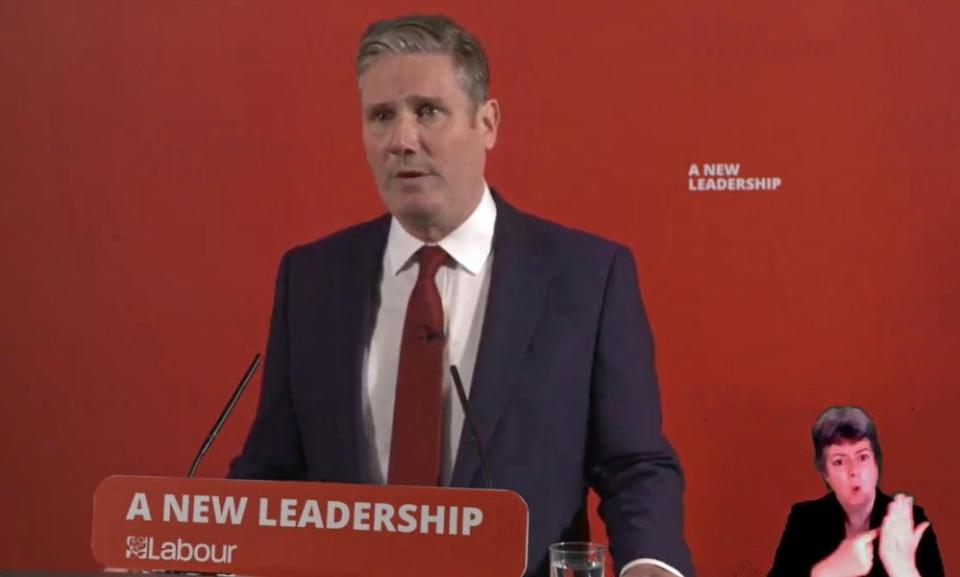Antisemitism in Labour: what did the report find and what happens next?

What is the Equality and Human Rights Commission (EHRC)?
Often referred to as the UK’s human rights watchdog, it is an independent arms-length body with a unique set of legal powers to enforce equality laws, eliminate discrimination, reduce inequality and protect human rights.
It was established in 2007 by a Labour government following a merger of the Commission for Racial Equality, the Disability Rights Commission and the Equal Opportunities Commission.
Was the investigation into failings over antisemitism in the Labour party unusual?
Yes. The EHRC has never before embarked upon a statutory inquiry into a major political party. Labour is only the second political party to be investigated by it: in 2009, the EHRC launched legal action against the British National party over concerns about ethnic restrictions on its membership.
What were the terms of the inquiry into Labour and antisemitism?
After receiving hundreds of complaints from Jewish party members alleging either antisemitism or a failure to investigate allegations on antisemitism, the EHRC launched an inquiry in May 2019.
Related: Labour responsible for harassment and discrimination, EHRC antisemitism inquiry finds
It aimed to establish whether Labour had broken the law by failing to implement recommendations from Lady Royall, the home affairs select committee and the Chakrabarti report to stem antisemitism in the party; whether the rule book and the party’s investigatory and disciplinary processes enabled it to deal with complaints; and whether the party had responded properly to complaints of unlawful acts.
How did the EHRC carry out the investigation?
It received evidence from the Jewish Labour Movement, the Campaign Against Antisemitism, Jewish Voice for Labourand whistleblowers. EHRC investigators analysed a sample of 70 complaints of antisemitism made against Labour party members including 12 complaints put forward by the Labour party.
Most of the sample of complaints related to conduct on social media, reflecting the predominance of that type of complaint overall. However, it also included conduct at meetings and events and comments made to the media.
What did it conclude?
The EHRC found that Labour was responsible for three breaches of the Equality Act (2010) relating to political interference in antisemitism complaints; a failure to provide adequate training to those handling antisemitism complaints; and harassment.
The failure relating to political interference “mainly came from the opposition’s office”, the EHRC found, and this was “not a legitimate approach”. The interference applied to a third of the 70 case files reviewed.
What is the reputation of the EHRC?
The EHRC has been dogged by problems including internal rows and a lack of funds. Since David Cameron came to power in 2010, its budget has been cut from £63m to less than £17.4m. It has often been portrayed as toothless by equality campaigners, or a “politically correct” liberal institute by those on the right.
It was recently criticised by the Muslim Council of Britain for failing to launch an inquiry into allegations of Islamophobia in the Conservative party.
A report last year from the Commons women and equalities committee called on the EHRC to “overcome its timidity” and “refocus its work”.
What happens next?
The Labour party has been served with an unlawful act notice. It has until 10 December to draft an action plan to implement the recommendations, which is legally enforceable by a court if not fulfilled.

 Yahoo News
Yahoo News 